Doctors Supplies: A Full List of Medical Equipment Healthcare Offices Need in 2025
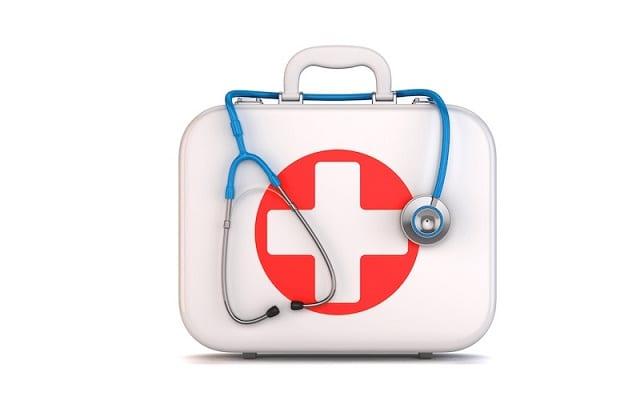 At Medical Call Service we know that running a clinic takes time, patience, staff, and resources. Some of those you need to order in advance. Here’s a list of basic doctor supplies every medical office should have.
At Medical Call Service we know that running a clinic takes time, patience, staff, and resources. Some of those you need to order in advance. Here’s a list of basic doctor supplies every medical office should have.
There are over one million healthcare physicians working across the United States at the moment. These doctors work in a variety of roles, from surgeons to psychiatrists to general practitioners.
Patients in the United States often find themselves frequently visiting general physicians. On average, a general physician may see approximately 3,500 patient visits annually.
Ensuring that a doctor’s office is well-equipped with the necessary medical supplies is crucial for delivering optimal patient care. Lacking basic medical equipment could mean missing the opportunity to assist a patient effectively in their time of need.
Popular Supplies For Exam and Procedure Rooms
| Exam Room Supplies | Procedure Room Supplies | Other Rooms |
| Exam Table (bariatric, ADA accessible, pediatric, specialty) | Power Procedure Table | Eye chart |
| Vital Signs monitor (blood pressure, temperature, pulse oximeter) | Patient monitor (blood pressure, temperature, pulse oximeter, ECG, respiration, heart rate) | Blood draw furniture |
| Basic Diagnostics (Otoscope/ophthalmoscope) | Complex Diagnostics (Macroview otoscope/Coaxial ophthalmoscope, anoscope) | Centrifuges |
| Seating (ergonomic mobile stool, visitor, patient seating) | Seating (ergonomic mobile stools) | Laboratory testing (Urine/chemistry/glucose, microscope) |
| Mobile exam light | Procedure lights | Refrigerators (drugs, lab, specimen) |
| Casework (sink, storage, mobile cart) | Casework (sink, storage, mobile cart) | Emergency equipment (AED, Crash cart, etc.) |
| Glass board/white board/Television | Glass board/white board/Television | Supply room shelving, cabinetry |
| Scale/stadiometer | Computer stand/wall arm F/computer (EMR) | Sterilizer |
| Computer stand/wall arm F/computer (EMR) | Hand sanitizers | Janitorial equipment |
| Hand sanitizers | Glove dispenser | Wheelchairs |
| Glove dispenser | Sharps container | Wheelchair scale |
| Sharps container | Trash receptacles | Waiting room, office, breakroom furniture |
| Trash receptacles | Paper towel dispenser | Televisions |
| Paper towel dispenser | Clock | Narcotic cabinet |
| Clock | Mayo stand | Trash receptacles (recyclable, hazardous) |
| Step stools | Break room appliances (microwave, toaster, coffee maker, refrigerator/freezer) | |
| Kick bucket | ||
| Hamper stand | ||
| IV Pole | ||
| Instrument table | ||
| Cylinder truck | ||
| Cryosurgical Unit | ||
| Electrosurgical Unit/Vacuum | ||
| Infusion pump | ||
| ECG/Holter monitor/Treadmill/Spirometer | ||
| Ultrasound stethoscopes | ||
| Colposcope | ||
| Fetal monitor | ||
| Audiometer/Tympanometer | ||
| Cast Cutter | ||
| Warming Cabinet |
If you’re uncertain about the essential supplies needed for your practice, you’re at the right spot for guidance. Below, you’ll discover a list of key medical supplies that should be included in every doctor’s office in 2025.
1. An Autoclave
Doctors’ offices are where people go when they get sick, so it’s natural that they see their fair share of germs. Controlling the spread of infection is extremely important to stop the growth of infections. This includes controlling the spread of hepatitis B and C, HIV or human papillomavirus.
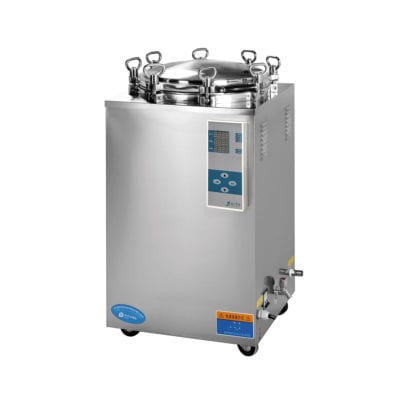
This is why an autoclave is a must-have on any hospital supplies list. An autoclave is a container that can heat equipment at high pressures and high temperatures. This makes it the most effective method of sterilization in the business.
To properly clean any medical equipment you should clean it then disinfect it before sterilization. You should sterilize any instruments for:
- Three minutes at 279°F
- Ten minutes at 264°F
- Or fifteen minutes at 155°F
You also need to keep careful records of your autoclave’s maintenance in your files and hold onto these for at least eleven years.
2. An Automated External Defibrillator
An Automated External Defibrillator (AED) is a portable medical device designed to treat sudden cardiac arrest (SCA) by delivering an electric shock to the heart. The shock helps restore a normal heart rhythm when a person experiences life-threatening arrhythmias, such as ventricular fibrillation or pulseless ventricular tachycardia.
Key Features of an AED:
- Automated Operation: The device provides voice and visual prompts to guide the user through the process.
- Electrode Pads: These attach to the victim’s chest to analyze heart rhythm and deliver a shock if necessary.
- Built-in Safety Measures: The AED only delivers a shock if it detects an abnormal heart rhythm that requires defibrillation.
- Easy to Use: Designed for use by laypeople, even with minimal training.
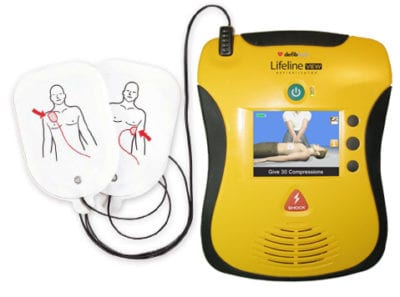
AEDs significantly improve survival rates in cardiac arrest cases, especially when used quickly before emergency medical services arrive.
3. Basic Diagnostic Equipment
No medical supplies list would be complete without this basic diagnostic equipment:
- A blood pressure monitor
- Thermometers
- Blood test kits
- A pulse oximeter
- Stethoscopes
- Ophthalmoscopes
- Otoscopes
- Colposcopes
- Eye charts
- A reflex hammer
You should also ensure that you have a procedure and examination tables to suit all your patients. This includes tables with adjustable heights and support systems. Keeping a step in your office is a useful way to help patients up onto a bed that doesn’t have an adjustable height setting.
Specialized lighting is also important for conducting a thorough exam for any patient.
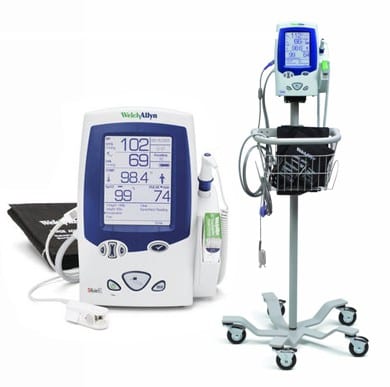
Every doctors’ office should also feature weighing scales and a height measure. These should be top of the range to ensure that they are accurate. In fact, most doctors buy their scales from specialized medical suppliers, not standard retailers.
4. Procedure Equipment
Sometimes you may need to perform minor procedures on a patient, such as cleaning or dressing a wound. So you should always have plenty of the following:
- Adhesive bandages
- Antiseptic wipes
- Cotton wool pads and swabs
- Gauze
- Hypodermic needles
- Paper towels
- Tissues
- Tweezers
Remember to store these supplies hygienically and don’t use any single-use supplies that have already been opened.
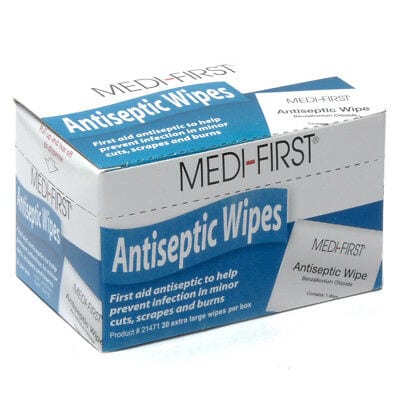
5. Emergency Equipment
Every now and then a routine doctor’s appointment takes a turn and a patient requires urgent medical assistance. When this happens it’s important to have emergency medical equipment on hand.
You should have:
- Aspirators
- Oxygen canisters
- Oxygen masks
- A resuscitation bag or mask
- Airway suction unites
- Foil blankets
- A trauma board
- Ventilators
These items on their own might not be enough to save a patient. But they will buy them valuable time until you can get them to a hospital.
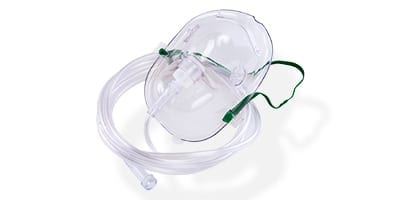
6. Laboratory Doctor Supplies
Sometimes basic diagnostics won’t be able to tell you everything you need to know. When this happens you may need to turn to laboratory analysis for a more comprehensive view of your patient’s condition.
Laboratory medical equipment lists should include:
- A centrifuge
- Urine analyzers
- Chemistry analyzers
- Glucose analyzers
- Microscopes
- A fridge and freezer for storing specimen
Some offices may choose to outsource some diagnostic tests. But having these supplies on hand will let you deliver quick and accurate diagnoses.
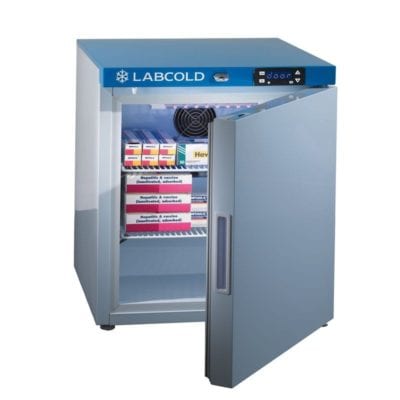
7. Protective Equipment
Medical offices require various types of Protective Equipment (PPE) to ensure the safety of healthcare workers, patients, and staff. These items help prevent the spread of infections, reduce exposure to harmful substances, and maintain a sterile environment.
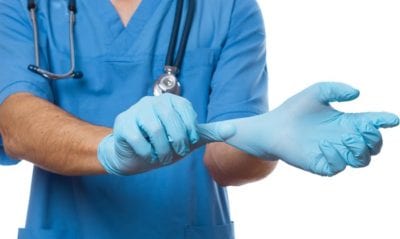
Essential Protective Equipment for Medical Offices and Their Purpose:
1. Gloves
- Types: Nitrile, latex, or vinyl.
- Purpose: Protect hands from exposure to blood, bodily fluids, and infectious agents. They also prevent cross-contamination between patients.
2. Face Masks & Respirators
- Types: Surgical masks, N95 respirators, KN95 masks.
- Purpose: Prevent the spread of airborne particles, including bacteria and viruses. N95 masks provide higher filtration and protect against airborne pathogens.
3. Face Shields & Goggles
- Purpose: Protect the eyes and face from splashes, sprays, and droplets, especially during procedures that involve bodily fluids.
4. Gowns & Lab Coats
- Types: Disposable or reusable.
- Purpose: Prevent contamination of clothing and skin from fluids, pathogens, and hazardous substances.
5. Shoe Covers
- Purpose: Prevent the tracking of contaminants into sterile or high-risk areas.
6. Head Covers (Bouffant Caps)
- Purpose: Reduce the risk of hair shedding and contamination in sterile environments.
7. Hand Sanitizer & Disinfectant Wipes
- Purpose: Ensure hand hygiene when soap and water are not available and disinfect surfaces frequently touched by patients and staff.
8. Barrier Shields & Desk Partitions
- Purpose: Protect front desk staff from respiratory droplets during patient interactions.
9. Biohazard Waste Disposal Bins & Sharps Containers
- Purpose: Safe disposal of used needles, syringes, gloves, and contaminated medical waste to prevent injuries and infections.
Why Medical Offices Need PPE:
- Infection Control: Reduces the risk of spreading bacteria and viruses, including COVID-19, flu, and other airborne illnesses.
- Patient & Staff Safety: Protects healthcare workers from exposure to bloodborne pathogens and contaminants.
- Regulatory Compliance: Meets OSHA and CDC guidelines to maintain a safe medical environment.
- Sterile Procedures: Ensures clean conditions during medical treatments and examinations.
Proper use of PPE is essential for maintaining a safe healthcare environment and preventing the spread of infections in medical offices.
8. An ECG Unit
Medical offices need an ECG (Electrocardiogram) Unit to monitor and assess heart health by recording the electrical activity of the heart. This device helps detect abnormalities such as arrhythmias, heart attacks, and other cardiac conditions. It is essential for early diagnosis, ongoing patient monitoring, and emergency situations, ensuring timely treatment and improved patient outcomes.
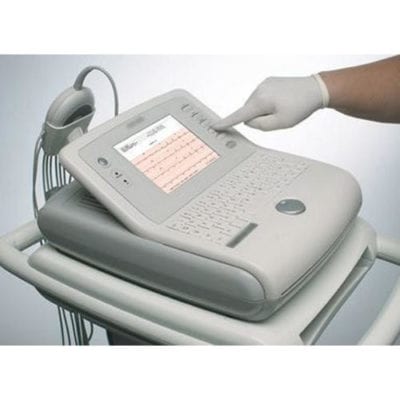
9. Specialized Equipment
You might also want to consider investing in some specialized equipment for your surgery. You will probably need only one set of each apparatus for your medical equipment listing, as you probably won’t need to use them on a daily basis.
Some specialized equipment you should consider getting includes:
- A spirometer for monitoring lung capacity
- A fetal monitoring machine
- An X-ray machine
- An ultrasound machine
A lot of these pieces of equipment are also readily available at a hospital so if you have one nearby you might decide you don’t need them. But having them in your office will allow you to diagnose and treat patients more efficiently.
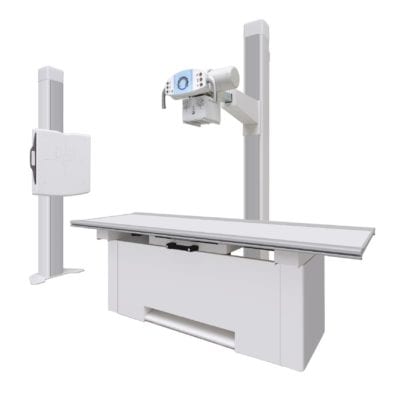
10. Administrative Equipment
The administration is a huge part of running a professional doctor’s surgery. Having up-to-date equipment is vital to keep the surgery running smoothly.
Communication is key in a doctor’s office. Patients need to be able to get in touch with the office to book, change or cancel appointments.
You need phones that can queue calls and a decent phone line. Or, to make things even smoother you might decide to hire a medical answering service.
You’ll also need computers and printers in each office and at the reception. These will be useful for accessing medical records and printing prescriptions. Some offices also let patients make appointments online.
Having an electronic announcement board in your waiting room is a good idea so patients know when to go in for their appointments. And you can save your receptionist time by installing an electronic login system.
Finally, there should be a clock in every room of the surgery. These are vital to keeping things running on time and ensuring every patient gets seen.
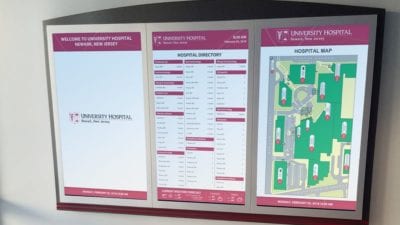
11. Storage Equipment
Equipping your doctor’s office adequately means you’ll need efficient storage solutions.
It’s essential to have well-labeled cabinets and shelving. This organization will streamline the process of locating necessary items swiftly and efficiently.
Additionally, it’s crucial to implement effective disposal systems throughout your office. This includes bins for general waste, sharps containers for needles and other sharp medical instruments, and facilities for safe chemical disposal. These are fundamental for maintaining the safety of both patients and staff. Furthermore, having the right janitorial equipment readily available is important for promptly addressing any spills that occur during the day.
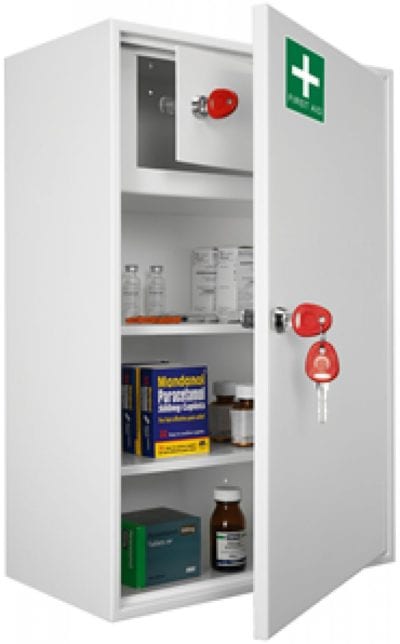
12. Supplies to Ensure Patient and Staff Comfort
Last but by no means least, you want your office to be a comfortable place for your staff and patients.
Comfortable furniture in your offices, waiting room and test rooms are a must. If a patient has to wait for their appointment you don’t want them coming in grumbling about the waiting room!
Having water coolers placed throughout your surgery is also key to keeping patients hydrated while they wait. This can help to avoid unnecessary fainting episodes, which could delay your day.
It’s a good idea to have a wheelchair or two on hand in case a patient suddenly needs assistance. And every office should have clean blankets for any at-risk patients.
To keep your staff happy, put effort into stocking the break room. Appliances such as microwaves, toasters, and coffee makers are a must. You should also ensure that the fridge is big enough to accommodate all of your staff’s food.
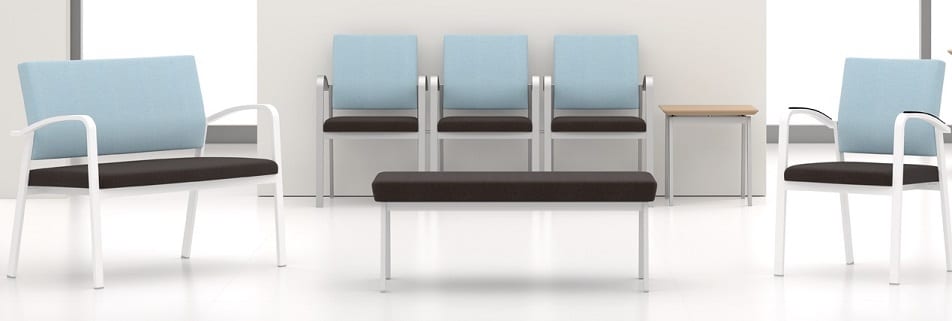
You’re Almost Ready To Go! Do You Need a Medical Answering Service?
No office is complete without these doctor supplies so make sure you kit yours out thoroughly. These will help you run an efficient, welcoming office that looks after both its staff and its patients.
For more help making your doctor’s office the best it can be, consider hiring a medical answering service. Get a quote below!
Where to Buy Medical Equipment and Supplies
In any healthcare setting—whether a large hospital, a small clinic, a rehabilitation center, or home care—medical equipment and supplies are essential. Access to reliable, high-quality medical supplies is crucial for effective treatment, patient safety, and overall comfort. But where can you find these critical items? This guide explores the best purchasing options available, helping you make informed decisions for your healthcare needs.
Traditional Medical Supply Stores
Local medical supply stores have long been a trusted source for essential healthcare products. They offer a broad selection, from everyday items like gloves and bandages to specialized equipment such as wheelchairs and hospital beds. These stores are typically open to both healthcare professionals and the general public, making them a convenient option for immediate needs.
Companies like McKesson and Henry Schein have been industry leaders in this field for many years, supplying healthcare providers with a wide range of medical supplies and equipment. They cater to a large number of healthcare facilities, offering competitive pricing and often providing delivery services.
Online Retailers
With the advancement of technology, online shopping has become a convenient option for most people. This is no different when it comes to medical supplies and equipment. Online retailers like Amazon and eBay, among others, sell a wide range of medical supplies, from simple wound care items to complex diagnostic tools.
Moreover, there are specialized online medical supply stores such as Medline, Vitality Medical, and Allegro Medical. They offer a comprehensive selection of medical supplies across various categories, with detailed product descriptions and customer reviews, helping you make an informed choice.
The main advantages of shopping online include the convenience of shopping from home, a wider range of products, and often lower prices due to the lower overhead costs of online stores. However, make sure to buy from reputable sellers and check their return policy before making a purchase.
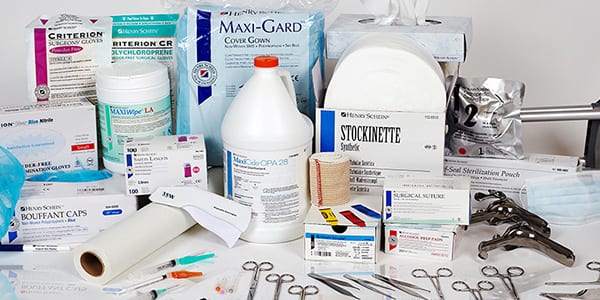

Leave a Reply